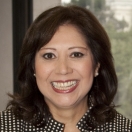
Ed. note: This is cross-posted from Work in Progress.
Next week, thousands of scientists, researchers, government leaders, public health officials and advocates from around the world will convene in Washington for the XIX International AIDS Conference (AIDS 2012). It is the first time the United States will host this important conclave in 20 years.
Much has changed in that time: new scientific discoveries, more effective treatments, and better and more effective ways to approach education and prevention of HIV/AIDS. People are living longer, healthier lives, and managing the disease.
HIV/AIDS education, prevention and medicines are working. But for me, the big question is: are people living with HIV/AIDS successfully working? And are we effectively addressing workplace issues so that they can bring their very best to the workplace?
I have always believed that work is more than a source of income. It’s a source of dignity. That’s why, as part of the week’s events, my department is co-hosting with the National Working Positive Coalition an Institute on HIV/AIDS and Employment on Saturday, July 28. We are gathering local, national and international HIV and disability stakeholders for a critical conversation about research and best practices that impact people living (and working) with HIV/AIDS.
According to the Centers for Disease Control and Prevention, about 1.2 million Americans are living with HIV. Many of these Americans proudly work in factories, hospitals, public service and other workplaces across the country. It is critical we ensure these environments are free from discrimination. We must promote the availability and use of employment and training opportunities, while educating employers, employees, and workforce professionals about work-related benefits and rights.
I believe it is essential that all people living with HIV/AIDS who want to work are able to do so. That’s why our commitment to supporting workers living with HIV/AIDS is ongoing and multi-faceted.
DOL’s Office of Federal Contract Compliance Programs enforces the employment nondiscrimination rights that are included in the Rehabilitation Act of 1973, protecting people living with HIV/AIDS who work for federal contractors. Our Wage and Hour Division enforces the Family Medical Leave Act, which provides protections for those living with a serious health condition to take time away from work because of your own HIV/AIDS status, or because you need to care for your parent, spouse, or child living with HIV/AIDS. Our Office of Disability Employment Policy, which promotes the employment of all people with disabilities, has developed a suite of specific resources and tools directed to employers, service providers and individuals with HIV/AIDS who are looking to enter or reenter the workplace. ODEP’s Job Accommodation Network also provides a resource for workplace accommodations and disability employment issues. And our Bureau of International Labor Affairs is impacting workplace and education policies across the world.
We have come so far together, turning the tide over the course of this crisis to improve and save millions of lives. As we move toward the exciting activities of AIDS 2012 and beyond, I hope you will join me to learn more and support employment for people living with HIV/AIDS.
Let’s do more to turn the tide even further. And eventually, we will reach our shared goal of a world free of AIDS.
Hilda L. Solis is the United States Secretary of Labor


